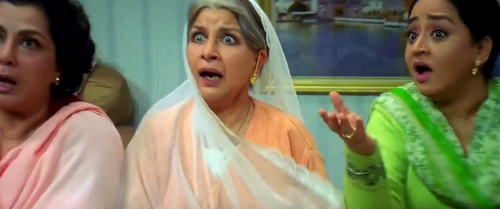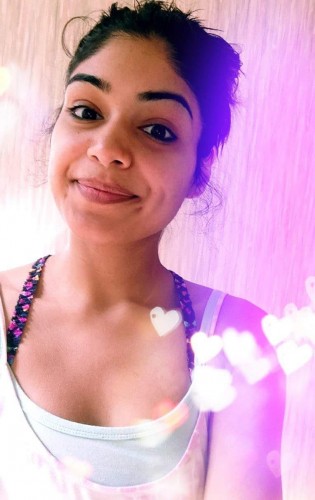
Recently, I came across a couple of social media posts from Aman Ali, a writer and performer, and Maria Qamar, AKA Hatecopy, a popular visual artist who recently released a short film titled “BadBeti.” The posts differed in style and breadth, but both of them revealed the complex relationships modern desis have with their inherited cultures, specifically: the big, fat, brown wedding.
On Facebook, Ali revealed his principles and outspokenness by flouting the traditional desi wedding.
“You spend anywhere from $50,000-100,000 (and in many cases way more) to invite 300+ people who could care less about you otherwise to sit in a room and talk smack about you behind your back. Why I gotta spend money for these people to talk trash about me and my family?” he asks.
While his convictions are strong, there’s a defeatedness that follows, saying,
“I know I’m in the minority here. My opinion is too weak to stand up against the South Asian Groupthink Empire. So I’ll probably end up being broke as hell on a disgustingly lavish wedding because the Empire is too powerful to fight on my own.”
Upon reading the post, I felt vindication and empathy. I, too, have experienced the deep idealism that Ali professes; I also have written Facebook protests against the desi-marriage-machine-status-quo, only to be poked fun at as a raging, angry girl. While it’s true that I was angry, I now have fell docile, internalizing a similar defeatedness that Ali describes.
I go to wedding events and keep my mouth shut, enjoy my time there for all the food and décor’s worth, and bury any “anti” sentiments I may be harboring, ones I was told were too different, taboo, unacceptable, angry. But no matter how hard I try, they creep up like a reflux. Maybe that’s why when I am finally home from an event, I often feel sick to my stomach and uninspired. I ask myself, “How do I accept this culture into my life when I don’t want so much of it?”
In a similar vein, but limited to 140 characters, it seemed like Qamar may also have been having internal conflicts when it comes to desi celebration-and-wealth culture and how her identity may or may not fall into it. She tweeted this:
having an existential crisis at a sangeet help pls
— Maria. (@Hatecopy) August 28, 2016
When widely-accepted, glamorized traditions challenge personal values instead of reinforcing them, it can be an intense and lonely experience.
But after reading these posts, I realized I was not alone in my desire for embracing alternative traditions while still having the need for acceptance from my desi friends and family. There are others like me — and, by the number of shares and likes on these posts, it seems like there are many others.
It is also important to note that while these “anti” sentiments share similarities, Indian-Americans are not two-dimensional and have differing perspectives in moments when they experience the push-and-pull of their hyphenated identities. The conflicts can fill our lives or fleetingly persist, they can happen anywhere: at a wedding reception, in the classroom, walking down the street. Navigating them can be exhausting.
And while I turn further and further from a desire for marriage, and more and more dream of living alone in a remote, tiny house somewhere in the Pacific Northwest, I can’t help to wonder what traditions I will choose to welcome, modify, and reject if a time comes when I am considering a life partner.
Qamar and Ali reinforced that it is okay for my values to be evolving and fluid, which is strength in itself. The examining of oneself amidst a spectrum of cultures and letting that examination lead to purposeful lifestyle decisions may be what makes being “true to yourself” perceived as so alternative, even threatening to others; so much that those of us who carry such convictions feel outspoken when voicing them, when in fact, they are shared widely.
 Jasleena Grewal is from Seattle, WA. Her beautiful Pacific Northwest home has taught her to see stars in cars, little amoebas in raindrop reflections against the quivering dashboard. Aside from what her parents have to say (about anything), she only lets the sky rule her moods.
Jasleena Grewal is from Seattle, WA. Her beautiful Pacific Northwest home has taught her to see stars in cars, little amoebas in raindrop reflections against the quivering dashboard. Aside from what her parents have to say (about anything), she only lets the sky rule her moods.




